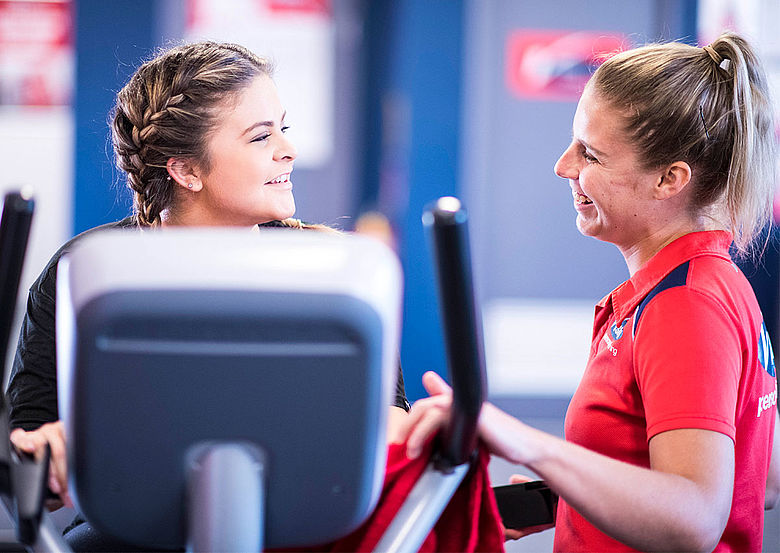While we are all for listening to our body’s cues, eating when we're hungry and honoring our cravings we do not recommend following this approach if you are starting out on your fitness and health journey. If you have a specific and clear goal in mind and you are just starting out “listening to your body” will not be an effective way to achieve your goal. The reason why being very few of us actually can identify and listen to our body’s biological cues. Embracing our natural hunger and fullness cues is not easy for everyone to do. Not to mention if your goal is fat loss or muscle gain, we may have to override those biological cues to get where we want to be. Long story short, if you want to make a significant change to your body composition, listening to your body or intuitive eating will not get you there.
For example, if your goal is fat loss this will require you to be in a calorie deficit. A calorie deficit means you are expending less than you are consuming. This will result in you feeling hungrier than normal. If you are eating intuitively without tracking your food consumption the chances of you staying in a calorie deficit are very slim. In 2013, a weight loss study compared intuitive eating to those who tracked their calorie intake. By the end of the study, the group that were tracking their food consumption had lost significantly more weight than those who were eating intuitively.
We are surrounded by processed, hyper-palatable, calorie dense foods that do not leave us feeling satiated. Our perception of our calorie intake is skewed and many of us are not aware of what a true portion size looks like. This makes it very hard to accurately listen to our bodies signals and know what our body needs. A study took a group of women who were classed as overweight and reported that they were eating 1200 calories a day and seeing no weight loss occur. When their actual intake was measured, they were eating 2468 calories! Over double what they thought they were eating. This just goes to show the average person will struggle to gauge how much they are eating. This is where nutrition tracking and education comes in, knowledge is power.
Here at Vision, we work one on one with our clients to determine what their goal is and then come up with a plan on how they will get there. We will provide customised targets of the amount of food and training required for your specific body type, goal and lifestyle. Our coaches then work with you to develop meal plans that are realistic, enjoyable and suitable for your lifestyle. We perform weekly check ins to reassess, readjust and stay focused on the goal.
We are not saying you have to track your calories forever. Tracking for a short period of time will educate you on what a true portion size looks like and what to eat to ensure you are getting an appropriate balance of carbohydrates, proteins and fats in your day. Tracking calorie intake will get you to your goal quickly and efficiently. Once you are there and have a base knowledge on how to eat it will be much easier to begin to listen to your body and incorporate intuitive eating.
Intuitive eating would be beneficial for those who have a base knowledge on nutrition, have tracked their food previously and are looking to just maintain their weight. It is not going to be for everyone, but it can be a great tool for some. Eventually, with our guidance and education you will be able to confidently navigate the world of nutrition and find a method that suits you.
Are you our next success story?
Enjoy a two week FREE experience pass, when you book a free consultation today.

